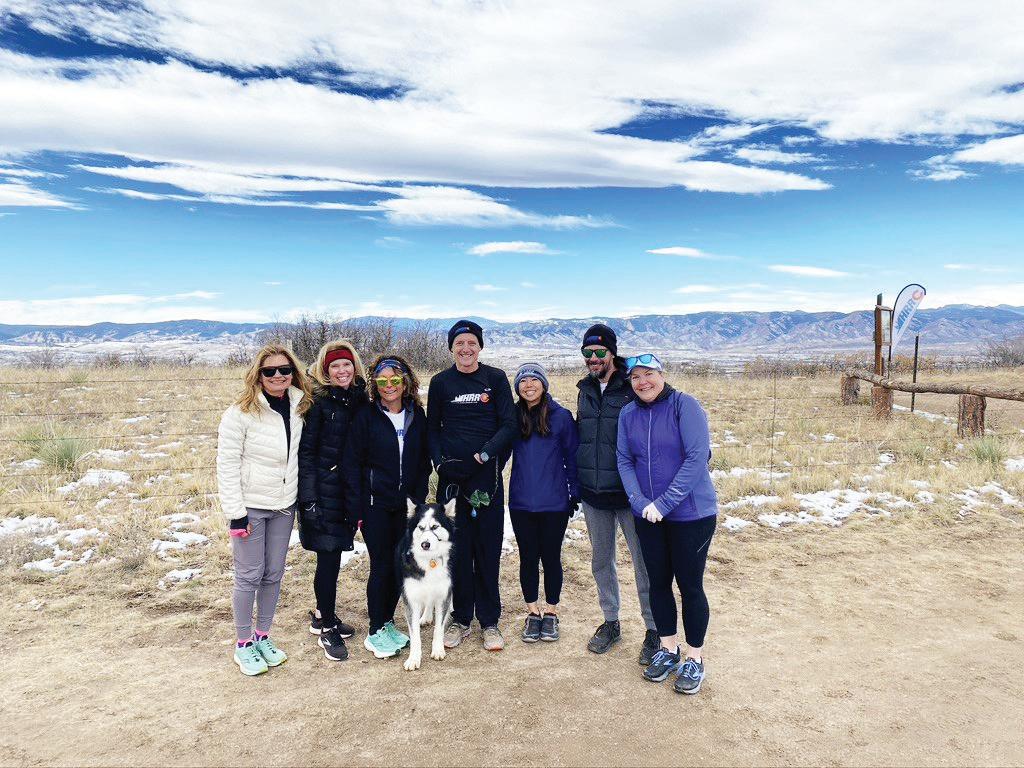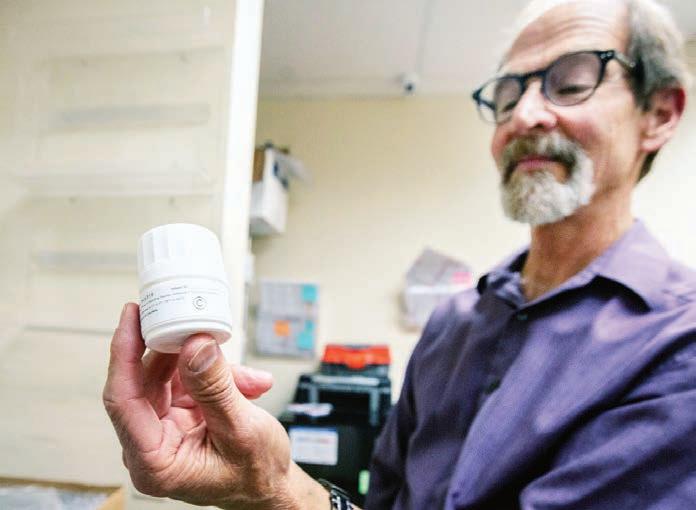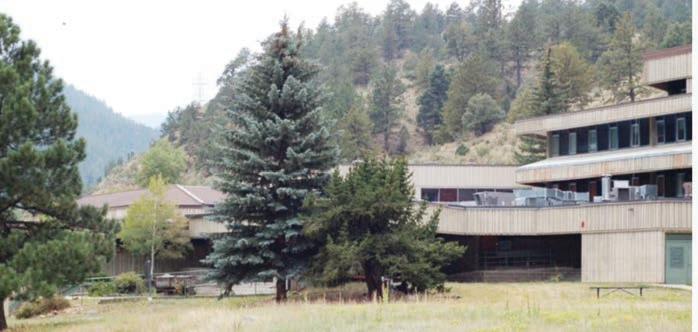
2 minute read
Tapping teens to connect youth in mental distress with support
BY ERIC GALATAS PUBLIC NEWS SERVICE
One in ve teens in the U.S. will experience a mental health challenge before they turn 18, but 64% of them won’t seek help.
A new training program is turning to teens to get their peers connected to the resources they need to turn things around.
Betsy Molgano, program director for Mental Health First Aid Colorado, said young people are in a unique position to identify warning signs. Maybe someone they know has been withdrawing from friends, or they used to enjoy soccer and now they aren’t showing up for practice.
“You’re not diagnosing this person, you’re just kind of noticing a change in behavior or appearance,” Molgano explained. “ e training is supposed to help kids feel more comfortable to approach someone and to be like ‘I’ve noticed that there is a change in your typical behav- ior. Do you want to talk about it? Is everything OK?’” is Public News Service story via e Associated Press’ Storyshare, of which Colorado Community Media is a member. the Food and Drug Administration (FDA) has allowed some of this work to move ahead more quickly by granting “breakthrough therapy” status to certain substances.
According to the 2021 Healthy Kids Colorado Survey, nearly 40% of high school students said they experienced symptoms of depression in the last year, and 17% said they had seriously considered suicide. Suicide is the third leading cause of death for kids aged 15 to 19.
Maranda Miller, mental health rst aid coordinator at Centennial Mental Health Center, said Colorado has taken steps to help young people, including o ering free mental health therapy for all youth through a legislatively funded program called I Matter. She encouraged all school districts, even those with tight training budgets, to explore local training opportunities at mentalhealthrstaid.org.




Luke Niforatos, the CEO of Protect Our Kids, a group that ghts for more restrictive drug policies and recently opposed Colorado’s ballot measure to decriminalize magic mushrooms, believes in the importance of following the FDA’s process.
“I think the concern that I have is, we’re seeing a lot of kind of breath- less rhetoric around the...miracle drug potential of psychedelics,” Luke Niforatos, the CEO of Protect Our Kids, a group that ghts for more restrictive drug policies and recently opposed Colorado’s ballot measure to decriminalize magic mushrooms, said.
Niforatos points to the risks of other drugs like opioids and cannabis. In MindMed’s LSD trial in Fort Collins, some groups are excluded from participation: pregnant women and people with a history of psychosis. at’s because the risks of using psychedelics in these populations are not fully understood.
“ at’s not to say that these drugs don’t do what everyone’s really excited about,” Niforatos said. “But what it does mean, though, is it’s still early.”
Research into a psychedelic called MDMA could be entering its nal phase before possible FDA approval.
Berra Yazar-Klosinski, the chief science o cer with the MAPS Public Bene t Corporation, said MDMA is further along in the process than other psychedelics thanks to a growing body of research on using it to treat mental health issues in conjunction with therapy.
She remembers looking over the results from a phase three clinical trial on using MDMA to treat PostTraumatic Stress Disorder, published in 2021 in the journal Nature is KUNC story via e Associated Press’ Storyshare, of which Colorado Community Media is a member.
Medicine. 88% of the participants experienced a meaningful change in their symptoms. Around two-thirds no longer met the criteria for a PTSD diagnosis.
“Oh, my gosh. It was so exciting,” Yazar-Klosinski said of the results. Later this year, Yazar-Klosinski will be walking the FDA through the data as part of a larger request to approve MDMA-assisted therapy.
“It was such a huge surprise that everybody was just shocked and very happy for the PTSD patients and what this could mean for them,” Yazar-Klosinski said.









